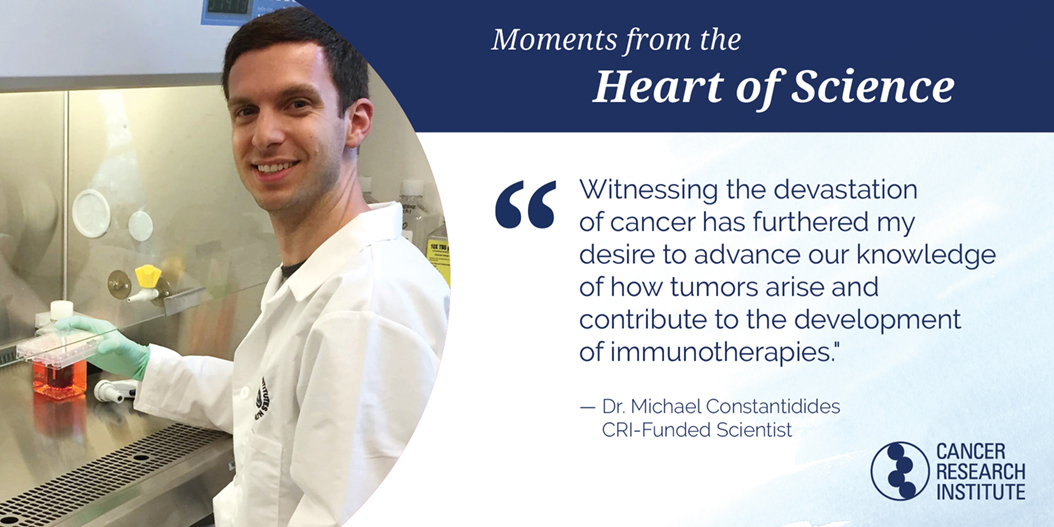Our bodies contain trillions of bacterial cells―collectively known as the microbiome―that help us carry out important activities, including digestion and even defense against cancer. Unfortunately, if the microbiome becomes unbalanced, it can lead to inflammation and diseases such as cancer. An irregular microbiome can promote colon cancer development, and Dr. Constantinides is seeing if it also plays a role in lung cancer. Specifically, he’s characterizing the bacterial species commonly found in the lungs and how they and their products affect lung cancer. These insights may then enable the development of approaches that enhance the “good” bacteria and silence the “bad” bacteria, ultimately improving patient outcomes.
I am committed to pursuing a career in cancer research and hope to develop novel immunotherapeutic approaches to cancer treatment. The Cancer Research Institute's Irvington Postdoctoral Fellowship will help make this possible.

Projects and Grants
Role of the microbiome in lung cancer
National Institute of Allergy and Infectious Diseases, NIH | Lung Cancer, Melanoma | 2015 | Yasmine Belkaid, Ph.D.
¡Hagamos correr la voz sobre la inmunoterapia! Haga clic para compartir esta página con su comunidad.